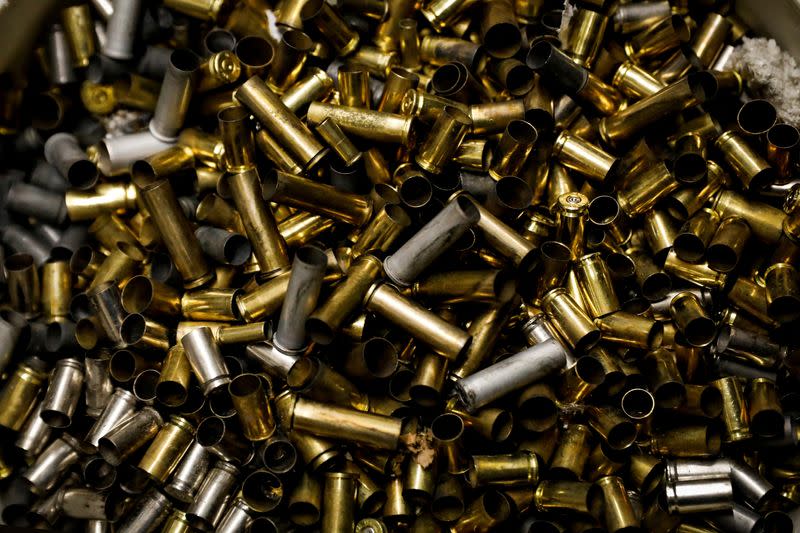Analysis-U.S. Supreme Court ruling provides ammunition for gun law challenges
By Lawrence Hurley and Andrew Chung
WASHINGTON (Reuters) - The U.S. Supreme Court's ruling striking down New York state's limits on carrying concealed handguns in public is likely to provide legal ammunition to challenge other regulations around the country even as Congress considers modest reforms.
In a 6-3 ruling, the court for the first time recognized that individuals have a right to carry a firearm in public under the U.S. Constitution's Second Amendment, which protects the right to bear arms.
The ruling, authored by conservative Justice Clarence Thomas, declared unconstitutional a New York law that required people to have good cause to obtain a permit to carry a concealed firearm.
The decision also clarified for future cases how courts must assess whether regulations are valid under the Second Amendment, requiring them to be comparable with the type of restrictions traditionally adopted throughout U.S. history dating back centuries.
As a result of the ruling, government entities defending gun restrictions must make additional arguments that the law in question is consistent with that history.
Because many gun statutes are not easily comparable to historical restrictions, it could make them vulnerable to legal attack. These include bans on assault-style weapons and high-capacity magazines as well as "red flag" laws to keep firearms away from people deemed a danger to themselves or others.
"I think this opinion is going to lead to a tremendous amount of litigation over the constitutionality of gun restrictions," said Adam Winkler, an expert on the Second Amendment at the UCLA School of Law in Los Angeles.
The ruling is "written so broadly as to call into question a wide variety of gun safety laws," Winkler added. That could include provisions of modest gun safety legislation currently being considered by Congress, Winkler said.
A bipartisan package of modest gun safety measures advanced in the U.S. Senate on Thursday. The legislation aims, among other things, to tighten background checks for would-be gun purchasers convicted of domestic violence or significant crimes as juveniles. It does not include broader measures favored by Democrats including President Joe Biden such as bans on assault-style rifles or high-capacity magazines.
Royce Barondes, a University of Missouri School of Law professor who teaches firearms law, said he expects that some previous challenges to gun regulations that were rejected by courts "are more likely to be successful after this case."

 Yahoo Autos
Yahoo Autos 

